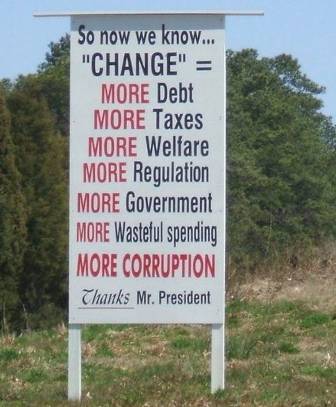[Skip to the end]
Looks like a lapse into behavior not becoming a President- name calling, cheap shots, demonizing, and failure to recognize the behavior in question is a consequence of incentives built into the current institutional structure.
The legislation in question completely misses the point.
More and more voters are beginning to believe this is deliberate.
‘True reform’ begins with my previous proposals:
If gold is a bursting bubble rather than a bull mkt correction and the dollar remains firm (which makes sense with crude breaking 70),
psychology could quickly turn deflationary with the concern that the Fed’s tools may be unable to deal with deflation.
And a government and mainstream economics profession that believes the government has ‘run out of money.’
Dec 11 (Reuters) — President Barack Obama complained about “fat-cat bankers” and sharply criticized Wall Street banks for paying out big bonuses to executives in a television interview to air on Sunday.
Obama, who has taken some heat from Americans for supporting a Wall Street bailout, told CBS’ “60 Minutes” banks do not understand how angry people are with them.
“I did not run for office to be helping out a bunch of fat cat bankers on Wall Street,” Obama said.
It very much appears that’s what he’s been doing.
The president said it appeared the only firms paying out bonuses and avoiding the caps put on them under the government’s Troubled Asset Relief Program (TARP) were the ones who had paid back their bailout money.
“I think that in some cases (to be able to pay bonuses) was the motivation,” Obama said.
That’s how capitalism is supposed to work- govt. establishes the incentives that determine private sector behavior.
“Which I think tells me that the people on Wall Street still don’t get it. They’re still puzzled why it is that people are mad at the banks. Well, let’s see. You guys are drawing down $10 (million), $20 million dollar bonuses after America went through the worst economic year in decades and you guys caused the problem,” he said.
No, the Bush and Obama administrations caused the problem by not supporting demand at full employment levels.
Obama told “60 Minutes” it was wrong for financial industry lobbyists to try to derail a financial regulatory overhaul that passed the Democratic-controlled House of Representatives on Friday.
It’s up to the administration to use the legal system to get the desired behavior. If what the banks are doing is illegal, prosecute them. If it’s legal but counter to public purpose, implement appropriate law.
“What’s really frustrating me right now is that you’ve got these same banks who benefitted from taxpayer assistance who are fighting tooth and nail with their lobbyists up on Capitol Hill, fighting against financial regulatory control,” he said.
They didn’t make the rules, govt. did. It’s up to govt. to make rules that promote public purpose.
After House passage of the financial overhaul, Obama issued a written statement in which he urged the Senate to join the House in passing what he called a necessary regulatory reform as quickly as possible.
“This legislation brings us another important step closer to necessary, comprehensive financial reform that will create clear rules of the road, consistent and systematic enforcement of those rules, and a stronger, more stable financial system with better protections for consumers and investors,” he said. (Reporting by Steve Holland; editing by Todd Eastham)
Unfortunately, none of them have a sufficient grasp of banking and the monetary system to get it anywhere near right.
For example, how many understand that TARP is nothing more than regulatory forbearance?
How many recognize taxes function to support aggregate demand and not to raise revenue per se?
How many recognize that exports are real costs and imports real benefits?
It continues to be a case of the blind leading the blind.
[top]


